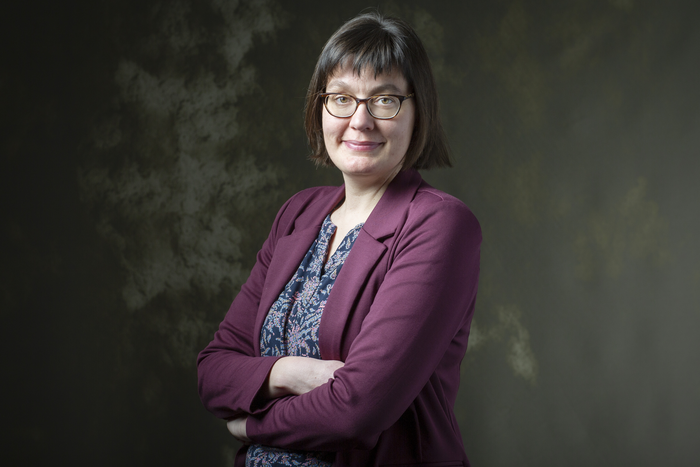A large number of microorganisms have the inherent ability to convert electricity and CO2 to high-value chemical products via electrosynthesis. These electro-trophic microorganisms absorb energy in the form of electrons, which they can use to convert CO2 into biofuels, for example.

Credit: Aarhus University
A large number of microorganisms have the inherent ability to convert electricity and CO2 to high-value chemical products via electrosynthesis. These electro-trophic microorganisms absorb energy in the form of electrons, which they can use to convert CO2 into biofuels, for example.
We have known about the process for years, it is completely natural, and the microbes belong to a large number of microbial groups. The same microorganisms also have the ability to break down metal via microbial corrosion.
However, the precise electro-trophic mechanism is still unknown territory, and neither do we know why certain microorganisms are electro-trophic and others are not.
Assistant Professor Jo Philips from the Department of Biological and Chemical Engineering at Aarhus University has received a grant from the Villum Foundation’s Young Investigator programme to study these questions in the project Some-like-it-low. There could be great potential for both microbiological Power-to-X and new tools to avoid microbial corrosion.
“Using the electro-trophic properties of microorganisms shows great promise for a wide range of applications, but we need a full understanding of the underlying mechanisms. Today, we know very little about what determines whether or not a microbe is electro-trophic, and this lack of understanding prevents the development of microbial electrochemical technologies,” says Jo Philips.
The Some-like-it-low project will focus on the hypothesis, that electro-trophic microbes are capable of consuming molecular hydrogen, H2, at low levels.
“Our research group here at Aarhus University, Microbial Electrosynthesis, is currently proving the hypothesis, that H2 is a key intermediate in this process. With Some-like-it-low, we’re able to extend this research to a much wider range of other highly relevant microbes and to use new techniques for investigating the electro-trophic mechanism,” Jo Philips says.
She continues:
“I have always been fascinated by microbes as they have so many intriguing properties which could be of use to solve some of the major issues of our time. I really hope, that this research will bring new insights into some of these remarkable microbes.”
Jo Philips is originally from Belgium and did her PhD in Bioscience Engineering at KU Leuven, where she worked on bioremediation of contaminated soils. From 2012 to 2014 she was a postdoctoral researcher at the Department of Microbiology at University of Massachusetts before going back to Belgium as a postdoc at Ghent University. In 2018 she got a position as tenure track assistant professor at Aarhus University.
Jo Philips is heading the Microbial Electrosynthesis research group at Aarhus University, which will carry out the Some-like-it-low project. The Villum Foundation has awarded DKK 6 million (EUR 0.8 million) to the project, which is set to start in summer 2023.




